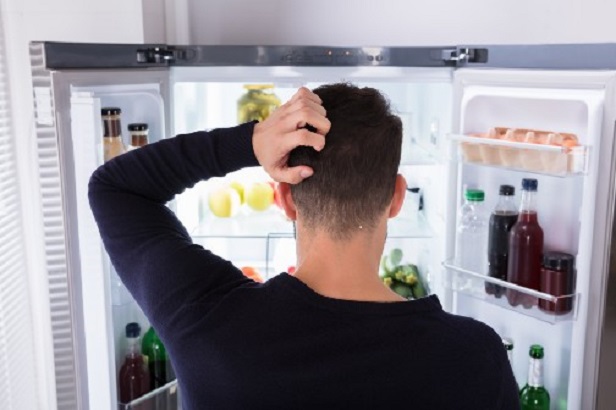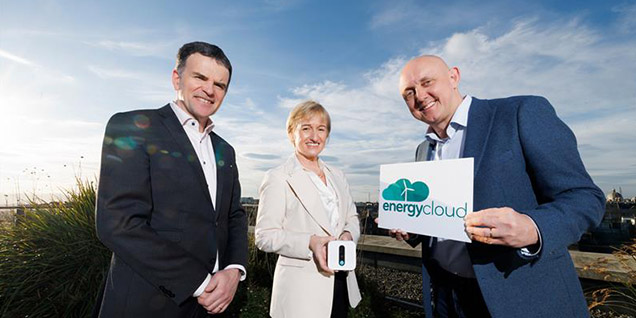7 Ways you might be wasting electricity every day

Most of us don’t really think about electricity, You flip a switch and the light turns on or you start a sentence with “OK, Google” and there’s music playing or a timer counting down. Most of the time, the electrical devices in your home just ‘work’ when you need them to so it’s easy to forget that you are paying for the electricity that powers them.
You’re only reminded of the cost when the electricity bill arrives. However, while the bill provides useful information on your overall usage, it can be hard to see where you actually spent that money. We all know the fear of leaving the immersion on, and know that the more you use your tumble dryer the more it will cost, but there are lots of other factors that affect your bill that are more difficult to see.
Let’s take a look at the common ways most of us use energy every day that could be unnecessarily driving up your electricity bill.
1. Leaving electrical devices on standby
According to research in the US, electrical devices that are plugged in 24/7 whether you’re using them or not can make up as much as 10% of your electricity bill. The most obvious culprit here is the television, but the same can be said for printers, scanners and desktop computers. For most people, it’s totally impractical to plug and unplug every single device in their home all day long. However, any reduction in the number of standby devices in your house will reduce your bills. Try starting with the items you use least often and see how many of them really need to be plugged in all the time. For more information on the impact standby has on your electricity bill, read our blog post: The Truth about Standby.
2. Charging your phone all night
Most modern phones take only a few hours to charge from empty to full, so why do most of us charge them overnight? The answer is convenience but it’s worth thinking about changing that behaviour. Even after the phone is fully charged it will continue to cost you money, even if modern smartphones are designed to keep this to a minimum the charger is constantly ‘trying’ to charge your phone. If you can, unplug your phone as soon as it hits 100%, it will save you money in the long run. The same applies to laptops or any device that you charge regularly.
3. Fridge Gazing
We’re all guilty of it - admiring the contents of our fridges and deliberating what we would like to eat – a healthy salad or a slice of chocolate cake? Those few seconds staring into the refrigerator really add up – so much so that every year, people spend around 10 hours looking at an open fridge or freezer. This might not sound like a problem but, for every 10 seconds the door is open it can take 45 minutes for the fridge to return to the correct temperature. That means the fridge, one of your biggest electricity users, has to work really hard to get back to normal after you’ve finally accepted you’re going to eat the cake.
4. Leaving the Lights On
One of the most obvious energy-wasting habits is leaving the lights on, but we all still do it. Your lighting makes up around 11% of your electricity bill so cutting our wasted light will definitely save you money.
5. Having the brightness up on your television
If you rarely think about how much electricity you use, we need to invent a new word for how rarely most of us think about the brightness level of our TVs. However, it is possible that your TV brightness is using more electricity than you need. You could most likely turn down the brightness on your television a small bit without even noticing a difference. According to research, switching your television to the "home" or "standard" setting can reduce your TV's energy usage by up to 30%.6. Turning on the dishwasher when it is half full
Your dishwasher is actually a really efficient way to clean your dishes, it can even be more efficient than handwashing. However, that only really applies when the dishwasher is full. The electricity required to run a full dishwasher is the same as it is to run a half load so running a half-full machine will only mean you need to run it more often. If your dishwasher is only half full, you are better off giving those items a quick scrub in the sink. To be even more energy efficient, after running a full load, turn the dishwasher off before the drying cycle starts and air-dry your dishes instead.
7. Using electrical appliances with poor energy efficiency ratings
Poorly rated electrical appliances are less energy efficient and negatively impact your electricity bill. When purchasing or replacing kitchen appliances such as fridges, freezers, dishwashers and washing machines, make sure to opt for more energy efficient models. "A" rated appliances are the most efficient and "G" are the worst energy guzzlers. The higher rated appliances will cost a little more up front but that extra investment will be worth it in the long run.Taken on their own, each of these items will only have a small impact on your electricity bill. However, if you can change all of these behaviours, the savings on your bill will add up. Even if you don’t see them straight away.


.jpg?sfvrsn=a8e55b2d_1)
.jpg?sfvrsn=4af3303_1)